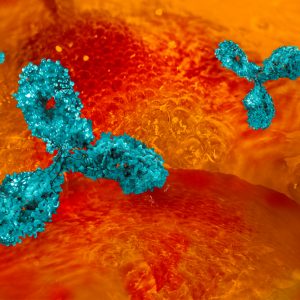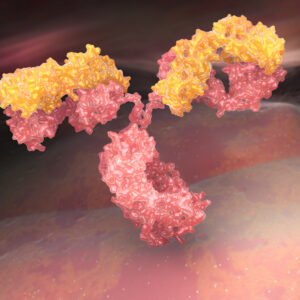Hepatitis A
Hepatitis A is a liver disease caused by the hepatitis A virus. The virus is primarily spread when an uninfected (and unvaccinated) person ingests food or water that is contaminated with the faeces of an infected person. The spread of disease is closely linked to unsafe water and food, or inadequate sanitation and poor personal hygiene. Unlike hepatitis B and C, hepatitis A infection does not cause chronic liver disease and is rarely fatal, but can cause debilitating symptoms and fulminant hepatitis (acute liver failure), which is often fatal.
The Native Antigen Company offer a panel of monoclonal antibodies specific to the hepatitis A virus, to facilitate research and assay development.
Hepatitis A Background
Hepatitis A virus (HAV) is a non-enveloped, positive-sense, single stranded RNA virus and member of the Hepatovirus genus of the family Picornaviridae. One serotype and six genotypes, I to VI, of HAV have been defined. Genotypes I, II and III are known to infect humans and are further divided into subtypes A and B. Infection with any of these subtypes provides an individual with lifelong immunity against all HAV viruses that affect humans.
Humans are a natural reservoir for hepatitis A virus. Transmission of occurs primarily via the oral-faecal route through ingestion of HAV contaminated food and water, or through direct contact with an individual infected with HAV. In developing countries, Hepatitis A virus infection commonly occurs in children and is associated with poor sanitation and low socio-economic status. In developed countries, cases of HAV infection may occur in young adults that are in high-risk groups such as care workers, people who inject drugs and individuals travelling from HAV endemic countries.
HAV is thermostable and resistant to treatment with acids, ethers and disinfectants. The hepatitis A virus infects the liver and replicates in hepatocytes, causing liver inflammation. During the incubation stage of HAV infection, an infected individual may be asymptomatic, but virus particles are actively shed and can be present in the patient’s stools. A range of non-specific clinical symptoms may then develop, which include nausea, vomiting, joint pain, malaise, fatigue and fever. Additional symptoms that can occur include cough, pharyngitis, itchiness and hives. As the infection develops, the patient becomes jaundiced and, in some cases, hepatomegaly occurs. The mortality rate associated with HAV infection is low, but complications can lead to acute liver failure and death in a small percentage of cases. Although effective vaccines for the prevention of HAV infection are available, there is currently no specific treatment for patients infected with HAV (WHO).
References
- World Health Organization: Hepatitis A, key facts
- Hepatitis A Antibodies
Hepatitis A Antibodies
Questions?
Check out our FAQ section for answers to the most frequently asked questions about our website and company.



